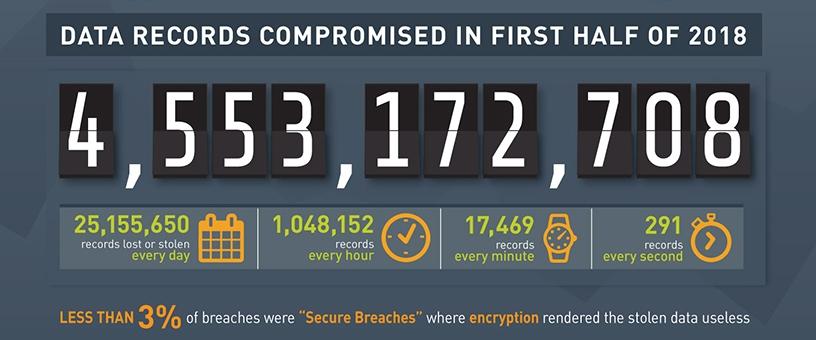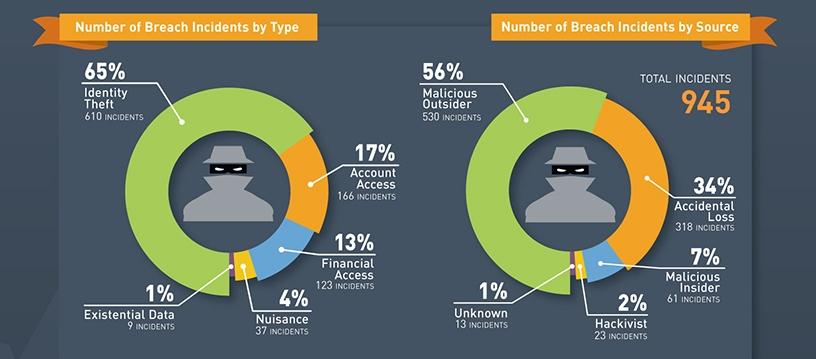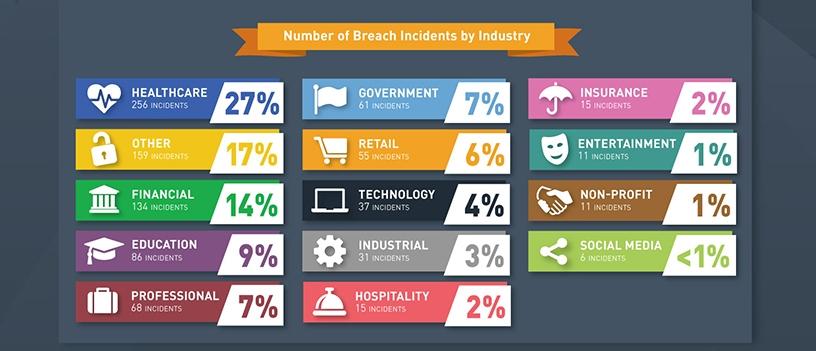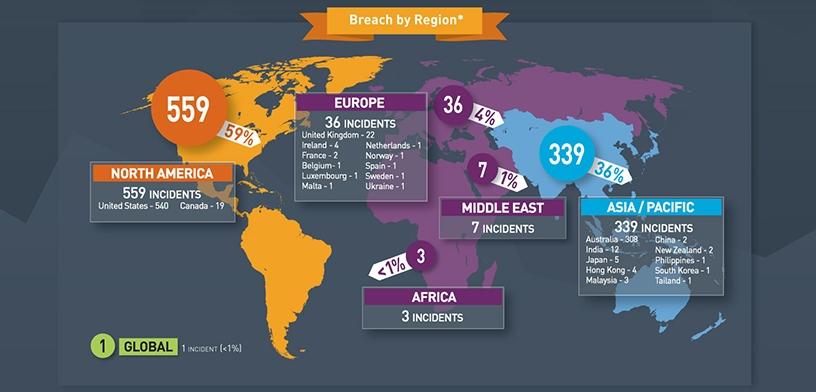
Social media incidents accounted for over 56% of the 4.5 billion data records compromised worldwide in the first half of 2018.
This is according to Gemalto's latest Breach Level Index, a global database of public data breaches.
Gemalto says over the first six months of this year, there were 945 data breaches. Just six social media breaches accounted for over half of all records compromised. This included the Cambridge Analytica-Facebook incident, where the personal information of up to 87 million users may have been improperly shared with the political consultancy.
In April, Facebook revealed that almost 60 000 South African Facebook users could have been impacted by the social network's data leak. Last month, Facebook announced another breach affecting 50 million of its global users.
"Obviously, this year social media has been the top industry and threat vector for the compromise of personal data, a trend we can expect to continue, with more and more sectors leveraging these platforms to reach key audiences, especially political teams gearing up for major elections," says Jason Hart, VP and CTO for data protection at Gemalto.
Just this week, Google announced it was shutting down the consumer version of its social network Google+ and revealed that data from up to 500 000 users may have been exposed to external developers by a bug that was present for more than two years in its systems.
Closer to home, South African data centre operator Hetzner yesterday disclosed a "security incident" involving account information; this after it previously revealed it had been hacked almost a year ago.
Rising risk
Compared to the same period in 2017, Gemalto found the number of lost, stolen or compromised records increased by 133%, though the total number of breaches slightly decreased over the same period, signalling an increase in the severity of each incident.
According to the Breach Level Index, almost 15 billion data records have been exposed since 2013, when the index began benchmarking publicly disclosed data breaches.
"During the first six months of 2018, more than 25 million records were compromised or exposed every day, or 291 records every second, including medical, credit card and/or financial data or personally identifiable information," the report reads.
"This is particularly concerning, since only 1% of the stolen, lost or compromised data records were protected by encryption to render the information useless, a percent-and-a-half drop compared to the first six months of 2017."

Breach sources
Gemalto says malicious outsiders caused the largest percentage of data breaches (56%), a decrease of almost 7% over the second half of 2017, and accounted for over 80% of all stolen, compromised or lost records. Accidental loss accounted for over 879 million (9%) of the records lost this half, the second most popular cause of data breaches, representing over one-third of incidents.
Identity theft continues to be the leading type of data breach, as it has been since Gemalto first started tracking in 2013. While the number of identity theft breaches increased by 13% over the second half of 2017 to just over 64%, the number of records stolen through these incidents increased by 539%, representing over 87% of all records stolen.
"Financial access incidents show a disturbing trend in the escalation of severity," Gemalto says.
Although it found that overall incident numbers are on the decline, 171 in the first half of 2017 compared to 123 in the same period in 2018, the number of records breached in the six-month period increased from 2.7 million in 2017 to 359 million this year.

Most sectors saw an increase in the number of incidents compared to the previous half. The exceptions were government, professional services, retail and technology, though both government and retail saw an increase in the number of records breached through fewer events.
Healthcare continues to lead in number of incidents (27%), with the largest such incident, 211 LA County, exposing 3.5 million records through accidental loss.
Social media ranks top for number of records breached due to the high-profile customer data compromises at Facebook and Twitter, although the number of incidents is the lowest, making up less than 1% of the total.

US target
North America still makes up the majority of all breaches (59%) and the number of compromised records (72%), while the United States is still by far the most popular target for attacks, although overall incidents are down 17% compared to the prior half.
Africa makes up less than 1% of all breaches, with three identified in the region during the six-month period. Asia Pacific makes up 36% of all breaches. Europe was around 4% and the Middle East just 1%.
Europe, however, saw 36% fewer incidents but a 28% increase in the number of records breached, indicating growing severity of attacks. The United Kingdom remains the most breached country in the region.
Hart says the group expects to see more data breaches reported by European Union countries bound by the new General Data Protection Regulation and the new Notifiable Data Breaches law in Australia.
"We should be careful not to misconstrue this as an increase in overall incidents in these areas but rather as a more accurate reflection of what is actually going on," adds Hart.
The Australian law saw the number of incidents in the country increase dramatically from 18 to 308.

Share